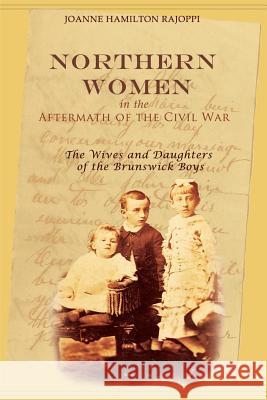Northern Women in the Aftermath of the Civil War: The Wives and Daughters of the Brunswick Boys » książka
Northern Women in the Aftermath of the Civil War: The Wives and Daughters of the Brunswick Boys
ISBN-13: 9781939995186 / Angielski / Miękka / 2017 / 260 str.
Three million husbands, fathers, sons, uncles and brothers marched to war between 1861 and 1865. Of that number, nearly 750,000 never returned home. For Mary Ann Hamilton of New Jersey the conflict separated her from her husband and three sons. Her beloved youngest ultimately perished in battle and her war-wounded husband lingered in pain at home before finally dying. Rendered economically helpless, a woman like Mary Ann with young children--including a daughter considered "insane" at the time--eked out a living as best she could. Northern Women tells the story of the perseverance and stamina of women facing an altered world, many of whom were confronted by widowhood, burdened with returning soldiers addicted to alcoholism or drugs, or strained by the care of men suffering from post-traumatic stress. The story of the Hamilton family relates the legacy as well as the dreams and hopes that these women left their children in the context of a rapidly evolving America--the new Federal pension system, the westward migration, industrialization and the start of the modern business culture--all of which opened new careers for women leading to their eventual emancipation at the start of the twentieth century.
Three million husbands, fathers, sons, uncles and brothers marched to war between 1861 and 1865. Of that number, nearly 750,000 never returned home. For Mary Ann Hamilton of New Jersey the conflict separated her from her husband and three sons. Her beloved youngest ultimately perished in battle and her war-wounded husband lingered in pain at home before finally dying. Rendered economically helpless, a woman like Mary Ann with young children—including a daughter considered “insane” at the time—eked out a living as best she could.Northern Women tells the story of the perseverance and stamina of women facing an altered world, many of whom were confronted by widowhood, burdened with returning soldiers addicted to alcoholism or drugs, or strained by the care of men suffering from post-traumatic stress. The story of the Hamilton family relates the legacy as well as the dreams and hopes that these women left their children in the context of a rapidly evolving America—the new Federal pension system, the westward migration, industrialization and the start of the modern business culture—all of which opened new careers for women leading to their eventual emancipation at the start of the twentieth century.











